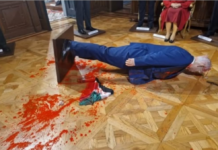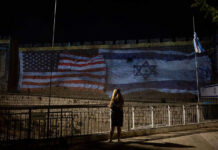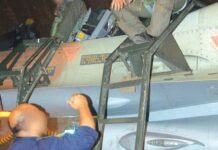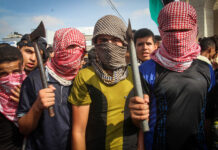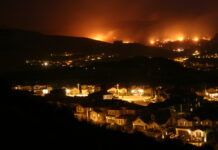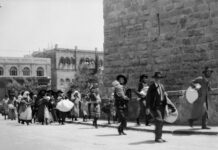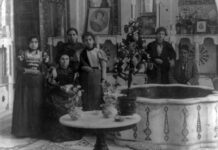Sixteen-year-old Tevel Argental, from the northern Israeli town of Yokneam, has been battling brain cancer since she was two years old. She has undergone multiple surgeries, chemotherapy, radiation and other treatments that have allowed her to live as best as possible under the difficult circumstances. At the same time, Tevel has been coming to grips with the death of her father, who died of a heart attack three years ago.
Tevel’s 14-year battle against the dreaded disease has taken a major toll on her. She has limited use of the right side of her body, and vision impairment, as a result of a still-present tumor. Plus, she often feels isolated or, as she told JNS, like a fish out of water in her community.
Camp Simcha is run by Chai Lifeline, an organization founded in 1987 dedicated to helping families cope with the crises and challenges of pediatric illness. Chai Lifeline operates Camp Simcha along with “Camp Simcha Special” for children and teens with chronic illnesses and disabilities. This is in addition to “Camp Simcha Without Borders,” a program in communities throughout the world for children who are too sick to leave their homes.
The programs are fully subsidized through the generosity of donors.
Tevel’s mother Orly told JNS that they were introduced to Camp Simcha through Chai Lifeline’s Israel branch, known as Chaiyanu. “Camp Simcha is the most important thing in Tevel’s life. When she is there she is in a place where for two weeks her worries and problems disappear, a place where she doesn’t have to answer questions like ‘why don’t you have hair, or ‘what’s wrong.’ At camp she is accepted for who she is,” she said.
“It’s really hard to put it into words how much strength the camp gives her,” Orly continued. “Every year, she comes back on a high, and with new friends who she is in touch with all year round who understand her, and are with her through everything.”
Orly explained that Tevel almost missed this year’s camp session as her visa to the United States had expired. During the process to renew it, Tevel’s passport was misplaced at the U.S. embassy. “Many tears were shed since she thought she would miss out, but a Chaiyanu representative went above and beyond for us and went to the embassy to resolve everything,” she said.
While Tevel missed the group flight to New York with the other Israelis, Chaiyanu got her on another flight, with someone to accompany her.
“It was just amazing that it worked out,” said Orly.
Tevel stressed that there is no barrier between the Israeli and American campers: “We speak the same language even if they speak English and I speak Hebrew,” she said.
Camp Simcha director Nachman Maimon elaborated on this point, telling JNS, “The Israelis who come to camp have a tremendous ruach [‘spirit’] and energy. When these kids simply look at each other, there is an international language there.”
Maimon said that “whether these kids are black or white, secular or religious, they live in this dark place because of their illness. But when they come together they don’t even have to say anything, they become best friends. That smile breaks down all the barriers.”
While the camp of course cannot offer a cure, he added, “we can flick the lights on in the dark tunnel they are in. And that happens when the campers show each other love and support. … The bunks at camp, even with all of the beeping medical machines, the kids turn it into fun. … Camp Simcha is a place of happiness and love and tremendous energy which takes these kids so far. I believe this place is literally life-saving.”
‘It’s a calming experience’
Rabbi Simcha Scholar, chief executive officer of Chai Lifeline, emphasized that his organization is committed to helping children with illness year-round and not only in the summer.
“The philosophy of Camp Simcha isn’t focused on families that we helped, it’s about that individual child,” he said. “Each kid has a unique and tailor-made game plan. Whether it’s being able to walk, or self-esteem, or interactions, physical or psychological goals, we follow up with them throughout the year.”
Scholar explained that Camp Simcha has thousands of volunteers who readily step in and stay with those affected at hospitals, if need be, so that their families can get some rest. The organization also provides programming for families, financial assistance and helps to develop personal relationships between the campers.
While Tevel is now back in Israel after an amazing summer, Orly told JNS that some time in the next few months her daughter will have to undergo another medical procedure in Vienna with the hopes of shrinking her brain tumor.
The family is hopeful, and Tevel is still reveling in her experience at Camp Simcha, but she misses the candle-making, glass-blowing, ceramics and other activities. Mostly, she misses her friends, campers, counselors and volunteers.
“For two weeks at Camp Simcha, it’s almost as if Tevel is given an injection which lasts for months. It’s a calming experience, but also a high. She has true self-confidence over there,” said Orly.

